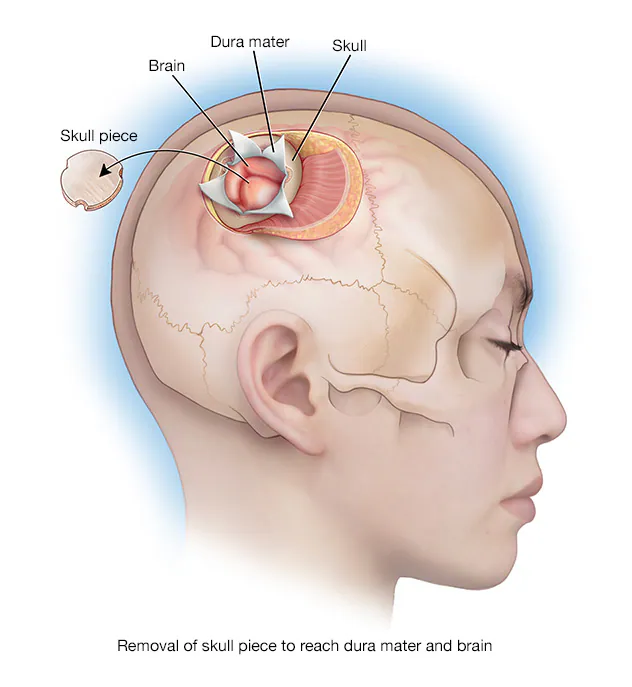
What is Cranial base surgery
Cranial base surgery is a specialized surgical approach used to treat tumors and abnormalities located at the base of the skull.
These procedures are often complex due to the proximity to critical nerves and blood vessels. Cranial base surgery is typically combined with other treatments such as radiation therapy or chemotherapy, depending on the nature of the condition.
It may be required for both benign and malignant tumors, as well as vascular or congenital abnormalities.
Cranial Base Surgery in Malakpet is performed by experienced neurosurgeons using advanced technology to ensure precision, safety, and optimal outcomes for patients.
Skull Base Surgery Overview
Skull base surgery is a specialized type of surgery that focuses on treating conditions at the base of the skull. This includes areas like the undersurface of the brain and important nerves and vessels that exit out of the brain to support senses such as sight, smell, and hearing. The challenge in skull base surgery is reaching these areas without having to cut through the skull and retract the brain. The goal is to get to and operate on these difficult areas with as little impact on the normal brain as possible.
Otolaryngology Skull Base Surgery
Otolaryngology skull base surgery is minimally invasive and almost always performed using a team approach. An ENT (ear, nose, and throat) specialist, or otolaryngologist, typically teams with a neurosurgeon to access these areas through the nose, eyelid, forehead, or above and behind the ear.

What Are Common Skull Base Conditions?
Overall, skull base conditions are rare. When a patient does have a skull base condition, it is important to seek out a skull base team that is comfortable and familiar with skull base surgery and the management of these conditions.
-
Common skull base disorders approached through the nose include:
- Pituitary tumors
- Sinus tumors
- Orbital tumors (located near the eye)
- Many spinal fluid leaks (with fluid that drips out of the nose) can also often be repaired through the nostrils.
-
Common skull base disorders approached from around the ear include:
- Acoustic neuroma
- Petrous apex lesions
- Aneurysms
- Meningiomas
These conditions often have specific symptoms, such as loss of sight, nosebleeds, facial numbness, asymmetric hearing loss, balance issues, or hormonal disturbances. These symptoms most often come on gradually and are diagnosed by an ENT specialist and/or neurosurgeon using a CT scan and MRI. Specialized tests such as hearing tests, visual field testing, or arterial studies may also be performed.
What Are the Treatment Options?
Not all skull base conditions require surgery. Most skull base tumors are benign, or noninvasive. However, they can put pressure on major nerves and cause serious symptoms when they grow. Minimally invasive surgery to remove these types of tumors focuses on preserving nerve function.
Some skull base tumors are malignant, or harmful, and must be removed. They may require chemotherapy and/or radiation therapy before or after surgery. Many centers have dedicated skull base teams that include oncology specialists to treat tumors. Surgery to remove malignant skull base tumors is also often minimally invasive.
What Questions Should I Ask My Doctor?
- What type of skull base condition/tumor do I have?
- What symptoms should I expect if this continues to grow?
- Are there multiple treatment options, and what are the risks and benefits of each?
- Which medical/surgical specialists will be involved in my care?
- What is my expected long-term outcome with this condition?
Explore More : Esophageal Cancer Surgery in Malakpet